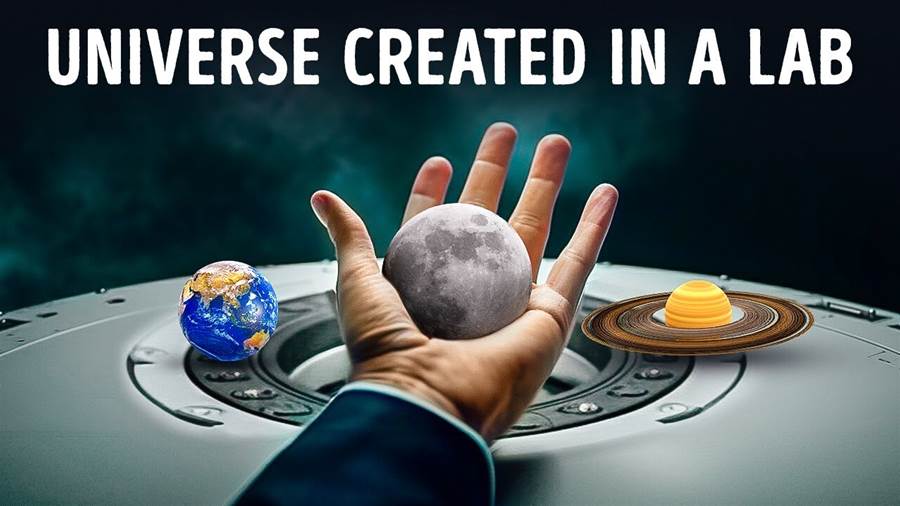
A recent theory proposes that our universe may have originated in a laboratory, challenging long-held beliefs about its creation. This idea stems from a study conducted by a team of physicists who suggest that the universe we perceive could be a "simulation" created by advanced beings in an extraterrestrial lab.
The report, based on the work of Professor Martin Savage and his colleagues, suggests that a technique called lattice gauge theory, used in quantum chromodynamics to study subatomic particles, might help uncover evidence of this theory. According to Savage, these calculations can help determine whether our universe is a simulation or a pure coincidence.

The researchers explain that their approach involves mapping the fundamental laws of physics onto a grid called a lattice, which allows physicists to analyze how particles would behave. They believe that if the universe is indeed a creation of highly intelligent beings, the lattice would contain "fingerprints" indicating that certain aspects of our reality are not naturally occurring.
While the theory remains highly speculative, some scientists find the concept intriguing. If proven, it could be a monumental shift in our understanding of the universe's existence, challenging conventional notions of a Big Bang or a cosmic accident.
The study's authors acknowledge that more research is needed, but this unique approach offers a fascinating perspective that urges us to question the origin of our universe. Whether the outcome supports or debunks this theory, it undoubtedly exercises the limits of human imagination and encourages further exploration of our complex reality.








